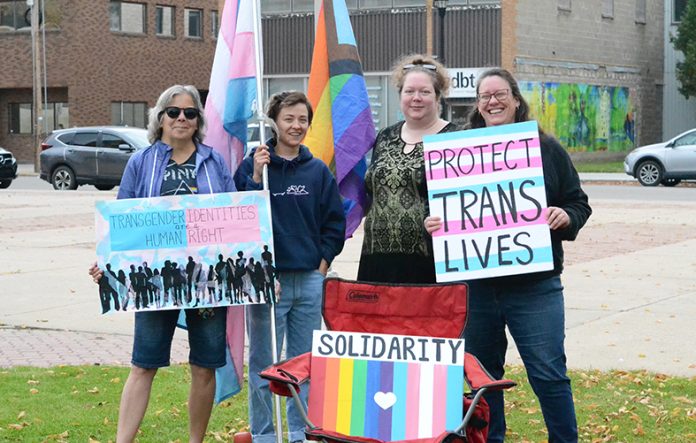
Prince Albert Pride chair trying to ‘stand strong’ as controversy progresses
A judge has granted an injunction that halts the provincial government’s pronoun policy until it’s argued in court – a step that Prince Albert Pride says is needed “to really put in thought and research to see if this is appropriate.”
In August, the Ministry of Education announced that it would be requiring parental consent for youth under 16 years old to change their names or pronouns at school.
Lawyers for Regina’s UR Pride Centre for Sexual and Gender Diversity sought the injunction, arguing the policy could out or misgender youth and violates the Canadian Charter of Rights and Freedoms.
The province, however, says parents should be included and informed on these changes, and that the policy had been misrepresented. Delivering his written decision on Thursday, Justice Michael Megaw said it was unclear that UR Pride misconstrued the policy.
“I find this to be one of those clear cases where injunctive relief is necessary to attempt to prevent the irreparable harm referred to pending a full hearing of this matter on its merits,” Megaw wrote.
Chelsea Bleau, chair of Prince Albert Pride, said the injunction protects the safety of kids, which is of the “utmost importance” – but that it’s difficult to remain hopeful that the policy won’t eventually become reality.
“I’m trying my best to be hopeful and still stand strong,” said Bleau. “If UR Pride is strong enough to fight against this, then all of us are.”
Bleau, who goes by the pronouns they/them, said they can understand that parents are protective of their children. However, they said, the concerns of child grooming and confusion about gender identity stem from stigma.
“I can see the side of a parent who is scared and may have a lot of misinformation about the queer community,” they said.
“When you have that misinformation and horrible stigma towards queer people, although it’s not their intention of hating, they are clearly still hating and they are clearly still putting their child at risk.”
A recent poll by the Angus Reid Institute suggests that 43 per cent of Canadians say parents should be informed and give consent if their children want to change how they identify. In Saskatchewan, that number was 50 per cent.
Premier Scott Moe said the government is “extremely dismayed by the judicial overreach of the court.”
He announced that the legislative assembly would reconvene on Oct. 10 to ensure the policy is implemented “using the notwithstanding clause of the Canadian constitution to pass legislation to protect parental rights.”
“It is in the best interest of children to ensure parents are included in their children’s education, in their classrooms, and in important decisions involving their children,” said Moe.
The notwithstanding clause allows governments to override certain Charter rights for up to five years.
In an emailed statement, the Opposition NDP said it welcomes Megaw’s decision to grant the injunction.
“The government should not come forward with legislation in the fall sitting to put this policy into law, and they certainly shouldn’t do so relying on the notwithstanding clause to push this policy forward,” reads the statement.
“The government should scrap this policy, which will force schools to out vulnerable kids.”
The injunction will remain in place until arguments are heard later this fall on whether or not the policy violates Charter rights.
– with files from the Saskatoon StarPhoenix

